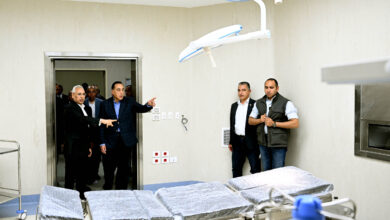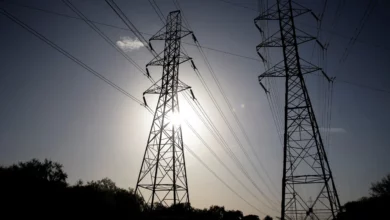
Minister of Petroleum and Mineral Resources Karim Badawy signed a memorandum of understanding (MoU) with Greek Minister of Environment and Energy Theodoros Skilakakis on cooperation in carbon capture, storage, and utilization with the aim to reduce carbon emissions from the energy sector and support low-carbon economy.
The MoU, inked on the sidelines of the ongoing Egypt Energy Show (EGYPES 2025), seeks to facilitate knowledge exchange between Egypt and Greece on the application of carbon capture and storage (CCS) technologies that capture the greenhouse gas carbon dioxide (CO2) and store it safely underground, so that it does not contribute to climate change. The scope of cooperation includes developing proposals for a regulatory framework for carbon capture, storage, and utilization activities, in accordance with environmental standards and regulations. It also leverages Greece’s experience in establishing its own regulatory framework in this field.
Additionally, the MoU includes the development of feasible economic models, technical feasibility studies, and research into potential uses of carbon dioxide in other applications that support the transition to a sustainable economy.
The two ministers discussed the next steps for cooperation in CO2 storage based on the signed MoU. Badawi emphasized the importance of working closely with Egypt’s Ministry of Environment in this regard. He also highlighted that cooperation with Greece would open new avenues for regional collaboration and expressed Egypt’s ambition to become a future exporter of CO2 removed from industries to European markets for industrial applications.
For his part, the Greek minister emphasized the importance of collaborating with Egypt in this field, noting that the legal framework for such activities would align with European standards, based on discussions Greece has had with the European Commission.
This agreement reflects both Egypt and Greece’s commitment to adopting integrated solutions to reduce carbon emissions, supporting the use of carbon capture and storage technologies as part of their strategies for transitioning to clean energy which align with international goals to combat climate change and promote sustainable development.
EGYPES serves as a major platform for global dialogue on energy and industry advancement. Its current 8th edition, which opened Monday under the theme “Building a Safe and Sustainable Energy Future”, is expected to witness the signing of key agreements in the petroleum sector, especially in energy efficiency and renewable energy fields, which will support cooperation frameworks and strengthen Egypt’s role as a regional energy hub.
The exhibition features 11 international pavilions and six specialized conferences, with the participation of countries such as China, Spain, Germany, Italy, and the United States for the first time.




